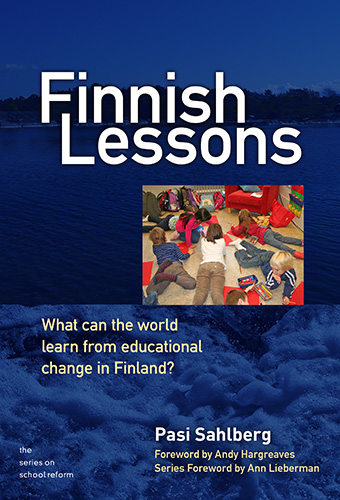While reading through my education-related feeds, I came to an interesting post on “The English Blog” written by Jeffery Hill. He teaches overseas and blogs about learning, writing, and speaking English. I do not deal as often with learners of English as a second language, but his post brought up an interesting point. His quote from a local radio program got me thinking:
“The ABCs are apparently no longer as easy as 1-2-3. Recent federal studies indicate that the average American teenager’s vocabulary is less than half that of the average teenager in the 1950s.”
This comment made me recount my recent lessons in English literacy through my undergraduate and graduate studies at Missouri State. Naturally, I read the post carefully a few times again and composed a response to outline my thinking:
“I think the valuable question we need to ask ourselves here is, “how important is knowing specific words to literacy?” Does knowing what “abscond” means help people to do business better? Does understanding what “ad hoc” means help you write a better poem or essay? Communication and composition are specific only to the environment that their authors occupy. People learn what they need to in order to accomplish their goals. If teens today know less words than their parents, then is it a crisis or a sign of shift in literacy? Maybe this generation is redifining the word.”
After I posted my reply, I sat back in thought. Did I really think that a lack of vocabulary represented a shift in literacy or was I simply playing devil’s advocate to this easy-to-accept commentary on the lazy youth and their social media addiction? What research could I find to support my statement?
I turned to E.D. Hirsch Jr. and his best-selling book on cultural literacy in America. In this book, he has lists of words, dates, and phrases that “literate” Americans should know. Do you know the significance of 1066 CE? How about absolute zero or amicus curiae? These are supposed to be common terms that Mr. Hirsch requires of you. Maybe you happen to know when the Battle of Hastings was because you were a history or an English major in college, or because you were on the quizbowl team in high school, but otherwise why should you know it?
Of course, I would tell you that learning about the importance of historical events would enrich your life. If you know that the Normans defeated the English in 1066, then you may come to learn that this military event changed the face of the English language forever. Many of the French words present in our vernacular today were introduced by good ol’ Billy Conqueror via the sword and arrow.
That being said, would you really say to someone who didn’t know the significance of this date, “I’m sorry, but you are illiterate” ? I hope not. What kind of message would that send to people? I think Hirsch has only the best intentions in mind as he writes that you should know what “aeschylus” means. He is saying that you should want to be smarter (and I agree). He says only 2/3 of our society (in America) is truly literate. Is there really a “network of information that all competent readers possess” or is literacy something more than common or shared knowledge?
I think that literacy has more to do with conveying and understanding ideas than with specific words, phrases, or concepts. If you don’t understand covalent bonding or absolute zero, but you can define curricum vitae and synecdohe, are you more or less literate than a person who can do the opposite? It sounds like the first person teaches science and the second English, but I would say neither are illiterate for having very specific gaps in their knowledge.
While it would be wonderful if we could count on every American to be able to discuss the importance stereoisomers in optical science upon pulling out a pair of sunglasses, I don’t think it’s necessary to be considered literate. For most of the third of America that Hirsch sees as illiterate, I would imagine their chief concerns are more to do with basic needs than their intellect.
Hirsch has a lot of great data to back up his thoughts on literacy, and I agree with a lot of it, but he uses a lot of anecdotal evidence too, like in the introdcution. Ben Stein recalls his experiences with California high school students, claiming that in many years not one has ever been able to tell him the dates of any US war, any of the first ten presidents, or where Chicago is. I find that very hard to swallow. As a teacher in a sub-rural Missouri public high school, I could easily find ten students in five minutes who could answer all three of those things clearly.
There is validity to the arguments though. Students are pump and dumpers when it comes to reading, learning, and testing. Students usually can’t tell you who that World War I started in 1914, or 1917 for the US involvement, because they only chose to remember it for “the test.” It is the challenge of the teacher to help students build knowledge connections so retention of information is easier. I think Hirsch comes to this point as well, that of making connections. I think we’re starting on opposite ends of the same spectrum though. He gives a determined set of information that people need to digest to be literate–a product to be obtained–while I think the process is where literacy is built.





